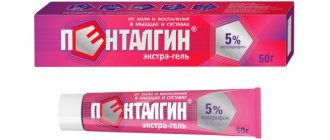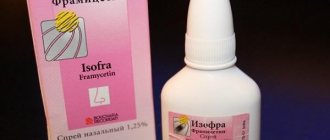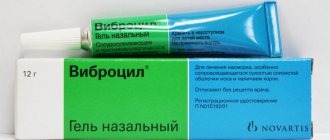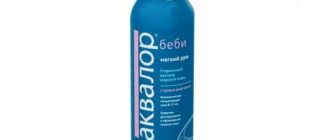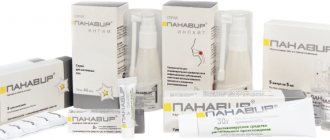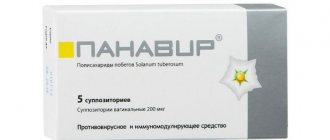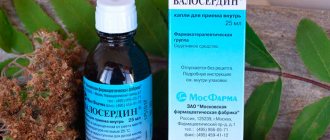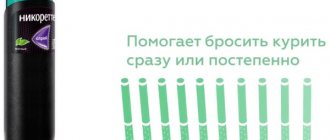Spray Ximelin Extra: composition of the drug and release form
The medicine contains two active components:
1
Xylometazoline is a substance from the group of alpha-adrenergic agonists. By acting on special receptors, it causes narrowing (constriction) of small blood vessels in the nasal mucosa, like arterioles.
Xymelin Extra photo
Thus, the intensity of rhinorrhea is reduced due to the anti-exudative effect and local hyperemia is eliminated, which allows the patient to breathe freely.
When used in therapeutic dosages, xylometazoline is practically not absorbed into the systemic system and does not cause general reactions.
2
Ipratropium bromide is the second active ingredient of the drug, which has an anticholinergic effect. The point of application is the blocking of M-cholinergic receptors, which are located in the smooth muscle cells of the tracheobronchial tree and nasopharynx.
The substance expands large and medium bronchi and prevents their spontaneous constriction. In addition, ipratropium bromide suppresses the secretion of mucus by the glands of the epithelial lining of the nose, which reduces local swelling.
Xymelin nasal spray also has excipients: sodium hydroxide, water, 85% glycerol, concentrated hydrochloric acid, disodium edetate.
The dosage form of the drug contains the following description: a nasal spray, which has a colorless transparent solution and is enclosed in plastic bottles with a dispenser.
The product is also available in the form of drops intended for intranasal use only.
Pharmacological properties of the drug Ximelin extra
Xylometazoline belongs to the group of local vasoconstrictors (decongestants) with an α-adrenomimetic effect; it causes constriction of the blood vessels of the nasal mucosa, thus eliminating swelling and hyperemia of the nasopharyngeal mucosa. Facilitates nasal breathing during rhinitis. Ipratropium bromide is a quaternary ammonium compound that has an anticholinergic effect. When administered intranasally, it reduces nasal secretion due to competitive inhibition of cholinergic receptors located in the epithelium of the nasal cavity. In therapeutic concentrations it does not irritate the mucous membrane and does not cause hyperemia. The action begins within 5–10 minutes and lasts for 6–8 hours.
Contraindications
The summary of the drug contains detailed information regarding contraindications for which the use of a spray is inappropriate and even dangerous.
These include:
- Decompensated and poorly controlled diseases of the heart and vascular system - atherosclerosis, arrhythmias, paroxysmal tachycardia, hypertension, heart failure.
- Children's age - that is, the spray is not prescribed to persons under 18 years of age.
- Hyperthyroidism is a pathology of the thyroid gland, accompanied by its hyperfunction; diabetes.
- Atrophic rhinitis – when the nasal mucosa becomes thinner.
- Glaucoma is an eye disease in which intraocular pressure is significantly increased.
- Hypersensitivity to the components of the drug - the development of both local and systemic allergic reactions.
Source: nasmorkam.net All of the above pathologies are an absolute contraindication to the use of Xymelin, since there is a high risk of adverse reactions, despite the fact that the substance enters the bloodstream in extremely low concentrations.
Side effect
In Xymelin Extra, instructions for use are necessarily included in the cardboard packaging with the bottle, so reading it is very important. If a decongestant is used incorrectly or for an unreasonably long time, various undesirable reactions may occur.
As a rule, this is a feeling of dryness in the nasal cavity, irritation, frequent sneezing, a tingling or intense burning sensation.
Much less often, treatment with the drug is aggravated by swelling of the mucous membrane and an increase in the amount of nasal discharge.
It is worth noting
Common adverse reactions include increased systemic pressure, arrhythmia or tachycardia, headaches, deterioration of visual acuity, sleep inversion and depressive states.
Dyspeptic side effects include nausea and, much less frequently, single vomiting.
Side effects of the drug Xymelin extra
With frequent and/or prolonged use: irritation and/or dryness of the nasopharyngeal mucosa, burning, paresthesia, frequent sneezing, hypersecretion, nosebleeds, headache. Rarely: systemic allergic reactions (anaphylactic reaction, angioedema of the tongue, lips and face, laryngospasm, swelling of the nasal mucosa, skin rash, urticaria), blurred vision, tachycardia, arrhythmia, increased blood pressure, headache, insomnia, weakness, anxiety (with long-term use of the drug in high doses).
Xymelin Extra: indications for use
First of all, the medicine is used for a runny nose, which can be either an independent disease or a symptom of an infectious pathology.
What is Xymelin prescribed for:
- Respiratory viral infections occurring with symptoms of rhinitis.
- Seasonal hay fever.
- Inflammation of the auditory tube.
- Sinusitis.
- Acute form of allergic rhinitis.
- Catarrhal otitis media (to reduce swelling of the nasopharyngeal mucosa).
The drug quickly and effectively copes with the exudative component of inflammation, and also reduces the amount of nasal discharge, allowing him to breathe freely.
Xymelin Extra: dosage and method of application
The spray is intended for intranasal administration only. Before using the medicine, it is recommended to clear the nasal passages of mucus and crusts accumulated in them.
This can be done using a cotton swab dipped in chilled boiled water, or using saline solution (the nose is washed with a syringe without a needle).
Next, the protective cap is removed from the bottle, and the tip is carefully inserted into the nasal passage. The mucous membrane is irrigated after squeezing the bottle.
The same manipulation should be repeated with the second nasal passage. When finished, the tip of the sprayer is cleaned and capped.
Recommended dosage: one dose (injection) 1 to 3 times per day. It is not permissible to use Xymelin for more than 10 days, with the exception of a doctor’s prescription in special cases.
Use of the drug Xymelin extra
Intranasally. For patients over 18 years of age: 1 injection into each nasal passage no more than 3 times a day. The course of treatment is up to 10 days. Long-term use of xylometazoline can cause swelling of the nasal mucosa and increased secretion, which is due to the development of increased sensitivity of cells to the active ingredients of the drug, the so-called reverse effect. One injection of Xymelin Extra contains about 70 mcg of xylometazoline and 84 mcg of ipratropium bromide.
Instructions for use for children
As stated above, it is prohibited to use extra spray in children. At the same time, children are prescribed Ximelin Eco nasal drops or a regular spray.
0.05% spray is approved for use from two years of age: 1st dose once or twice a day. It is not recommended to inject a child more than three times. 0.1% spray is used in children over 6 years of age for three injections. The duration of such treatment is no more than 7 days.
Xymelin nasal drops are prescribed to children in a 0.05% concentration. 1 or 2 drops are administered into each nasal passage up to three times a day. In this case, you should first clean the nasal cavity.
On the topic: How to treat a persistent runny nose in children. If it doesn't last long
Is it possible during pregnancy and breastfeeding?
The first trimester of pregnancy is an extremely undesirable period for the use of such drugs. For pregnant women at a later stage, as well as nursing women, it is permissible to use the spray only after assessing the expected positive effects and possible harm to the fetus. It is important not to exceed the dose and duration of therapy indicated in the instructions.
How much does Xymelin Extra cost: price
| Release form | Package | Manufacturer | Price |
| Nasal spray 84 mcg+70 mcg/dose 10 ml | Takeda GmbH, Japan | 240 rub. |
Xymelin for children
The drug can be used to treat children over 2 years of age. Sometimes specialists can prescribe this remedy to younger children, but in this case careful monitoring of the child’s body reactions is important. Xymelin is prescribed in cases where, based on diagnostic results, the doctor determines acute rhinitis in children.
Indications for the use of Xymelin for the treatment of children are:
- Allergic rhinitis in a child.
- Nasopharyngitis.
- Sinusitis.
- Sinusitis.
- Carrying out rhinoscopy.
- ARVI, in which one of the symptoms is a runny nose.
Otitis media may also be an indication for the use of the drug if the inflammatory process affects the middle ear and causes swelling of the nasal mucosa.
Dosage
When treating children, exceeding the maximum dose is strictly prohibited. The required frequency of use and dose of the drug is calculated by a specialist based on the degree of development of the disease.
Xymelin should be used in the following dosages:
Children aged 2-6 years are prescribed a drug whose active substance content is 0.05%. No more than two drops should be placed into each passage twice a day. For children over 6 years of age, the doctor prescribes the drug in a dosage of 0.1%. You should instill 1-2 drops no more than three times a day. The course of therapy should not exceed five days.- Spray (xylometazoline 0.05%) is prescribed to children from 2 to 6 years old. As a rule, specialists prescribe one spray, but in severe cases the dosage can be increased to two sprays.
- Xymelin in the form of a spray at a dosage of xylometazoline 0.1% is used to treat children over 6 years of age. The maximum dose is 2 sprays. The procedure can be performed up to three times a day, depending on the degree of development of the disease.
What else do you need to know?
Before the procedure, the child should clear the nasal passages. To do this, you can use saline solution or special products, for example, Salin, which can be purchased at the pharmacy. After this, the drug is dripped three times a day, 1-2 drops into each nasal passage.
Any excess dosage must be agreed upon with a specialist, and this is not just a matter of overdose. It is worth remembering that the drug can cause addiction, so after five days it must be replaced with another drug. If this is not done, then the use of stronger means will be required. Xymelin is used with caution in cases where a child is diagnosed with various types of diabetes mellitus. In this case, the drug is used only under the supervision of a specialist.
If the drug is used incorrectly, it is possible to develop the same side effects as in adults, but the danger is that in children they develop much faster, which can lead to serious consequences.
Therefore, any disturbance in the child’s well-being during treatment with the drug should not go unnoticed and the drug should be discontinued in a timely manner or replaced with another drug.
Spray Ximelin Extra: cheaper analogues
Similar analogues in composition, but with a lower cost:
- Rhinorus, which is also available in the form of drops and spray.
- Xylometazoline or Xylene.
- Oxymetazoline.
- Vibrocil.
- Nazivin.
- Otrivin.
- Knoxprey.
The listed drugs also have a vasoconstrictor effect and have similar indications. Due to the presence of two forms (drops and spray), they are acceptable for use in childhood.
Read more about analogues: Xylene nasal drops: use wisely. Instructions, reviews
Vibrocil drops for children and adults. Instructions, reviews.
Storage conditions and periods
The manufacturer indicates that the drug should be stored at an ambient temperature of no more than 30 ℃ and in a place protected from children.
Questions
Next, we will analyze the most frequently asked questions in relation to the drug in question.
Does it help with allergies?
One of the indications for the remedy is an acute form of allergic rhinitis. But it is worth noting that the drug is not a specific therapy, but is used only for symptomatic treatment.
By reducing swelling and mucus production, Xymelin will help eliminate the first symptoms of allergies, but the main treatment should include antihistamines, and in more severe cases, topical steroids.
Is Xymelin a vasoconstrictor or not?
The medicine contains xylometazoline, which has a vasoconstrictor effect on the epithelial lining of the nose. Due to this, the main effects of the drug are achieved.
However, it is not recommended to use it for a long time (more than 10 days), since in most cases an addiction to nasal drops develops.
What is the difference between Ximelin Extra and Ximelin Eco?
Xymelin Eco does not contain ipratropium bromide, and xylometazoline is contained in a significantly lower concentration (140 mcg versus 500). The medication also differs in that it is approved for children over 10 years of age.
So, Xymelin is a highly effective topical decongestant that is actively used in the treatment of runny nose in adults and children. [ads-pc-1][ads-mob-1]
